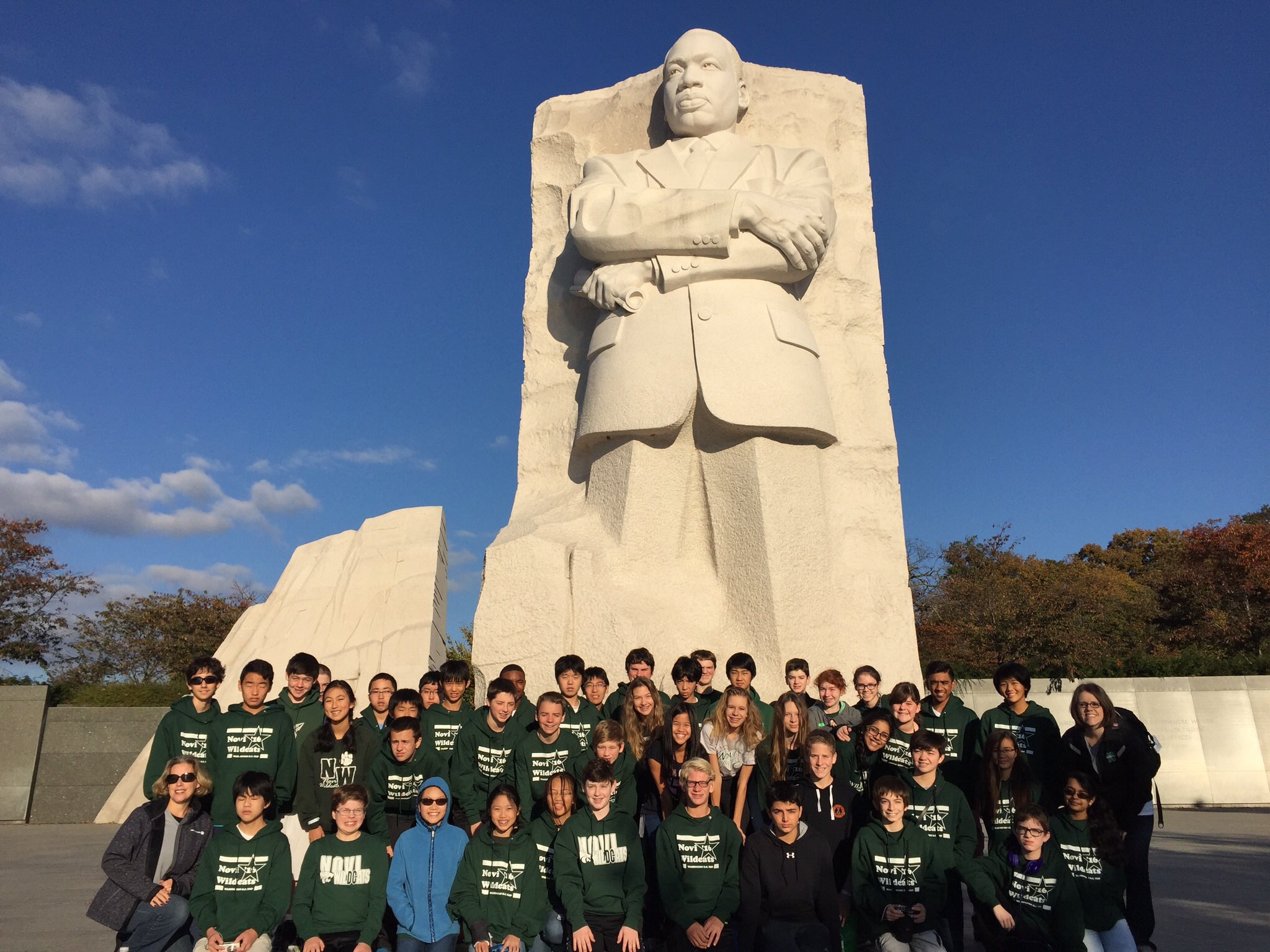
Our students, familiar with Dr. King because of his legacy and his service to our country, have, like most of us, read or at least listened to his great “I Have a Dream” speech, given on the steps of the Lincoln Memorial in Washington DC. On our visit to Washington DC our students visit the Lincoln Memorial and stand in the exact spot where Martin Luther King Junior stood as he looked out on hundreds of thousands of people and uttered those famous lines “I have a dream!” Those words mobilized a generation and today still capture our hopes and our dreams and our best intentions.
But the true genius of Martin Luther King
Junior was not the speeches he gave in front of hundreds of thousands of
people.
The true genius of Martin Luther King Jr. was
not his association with presidents and leaders throughout the world.
No the true genius of Martin Luther King Jr.
was his ability to live the words that he so eloquently spoke. When he spoke of making a difference, he lived a life that made a difference. He was
able to put into action the words that he spoke about our hopes and dreams.
The true genius of Martin Luther King Jr. was
that he not only was able to talk about the importance of supporting one
another he was able to live a life that showed he really did care
about other people.
Emblematic of this commitment was Dr. King’s
last recorded speech. It was given on April 3, 1968, in a church in Memphis,
Tennessee. It was a speech given to support the sanitation workers of Memphis,
Tennessee. On April 4, 1968, Dr. King would be shot and killed.
Think about that for a moment.
Dr. Martin Luther King Jr.’s last recorded
speech was given in a church in Memphis, Tennessee to support . . . garbage
men.
Dr. Martin Luther King Jr. – Nobel Peace Prize
awardee in 1964.
Dr. Martin Luther King Jr. – public speaker
whose I Have a Dream speech attracted over 250,000 people to Washington DC in
April 1963.
Dr. Martin Luther King Jr – honored by
presidents and politicians.
Dr. Martin Luther King Jr. had the power and
the social cachet to do and be almost anything. Yet on April 3, 1968, Dr. King
was in Memphis, Tennessee, to speak to and support . . . those who picked up
other people’s garbage.
Why would he do that?
A clue is contained in the speech that he gave
that evening.
In this speech Dr. King talks about the
tendency of people – people like you and me – to engage in “compassion by
proxy.”
The tendency of people to talk about the
importance of helping other people, the tendency of people to recognize the
need other people have, the tendency of people to understand intellectually
that there is a problem, the tendency of people to actually see a problem but
to not get involved.
Compassion by proxy is the belief that we are
compassionate if we recognize and talk about the problem.
Dr. King emphatically and strongly stated that
if we believe that we can be compassionate by proxy we are wrong.
Dr. King was clear. Compassion requires
investment.
Compassion requires getting out of our office,
out of our homes, out of our cars, and into the lives of those we seek to help.
We cannot be truly compassionate if we refuse
to visit, help, work with, stand next to, sit with, eat with, talk to, walk
with, and be with those who need our help.
We honor
Dr. Martin Luther King Jr. because we too believe in what he stood for. We believe in the words of Dr. Martin
Luther King Jr., words that call us forward to support and help other people.
But we would miss the true intent and the true
power of Dr. Martin Luther King Jr. if we do not recognize that Dr. Martin
Luther King Jr. calls us to get involved, to act, to actually do something for
others. Dr. Martin Luther King Jr. would be glad that we honor him but
more importantly Dr. Martin Luther King Jr. would be happier if we actually
do the work of being compassionate.
Let each of us commit
to action that will make a difference for our community.
Let each of us identify specific things that we can do to support the cause of
justice.
Let each of us find ways to help
everyone in our community find their voice.
Let each of us not be satisfied
with compassion by proxy.
Let each of us become people of
action, those that will and do make a difference for others in our community.
No comments:
Post a Comment